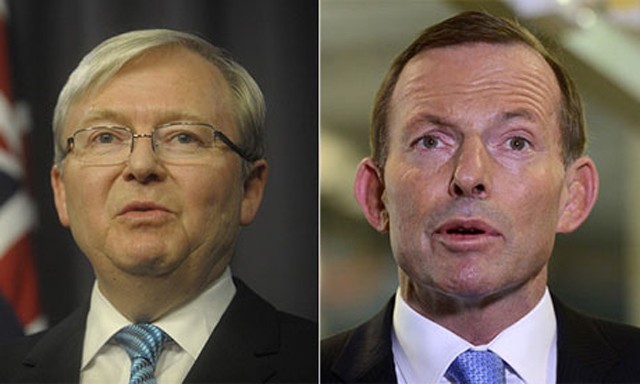Real reform is tough in government; it takes vision, character and intellect. Australia needs all three right now.
There are two reforms that require some old-fashioned political guts to be delivered: same-sex marriage and increasing Australia’s competitiveness by cutting the duplication of responsibilities between the commonwealth and the states.
Public opinion on gay marriage is changing in Western countries.
Tony Abbott needs to take careful note of the changing views on marriage equality in the US demonstrated by the recent Supreme Court decision to grant same-sex couples federal marriage benefits. The court allowed a successful challenge to the Defence of Marriage Act, which previously had defined marriage as between a man and a woman.
Last week, the day after the Supreme Court decision, we joined hundreds of thousands of spectators to watch New York’s gay pride parade on Fifth Avenue and were surprised at how mainstream the issue of gay marriage, and the parade, had become.
Republican mayor Michael Bloomberg marched along with Democratic governor Andrew Cuomo, candidates for mayor, including former congressman Anthony Weiner, numerous corporations and healthcare providers, the New York Police Department including the commissioner, representatives of the Jewish community and churches such as the Catholics, Baptists and even the Seventh-Day Adventists.
Several couples carrying signs reading “Just Married Today” received huge support from the crowd.
The world has moved on and Abbott should move with it and join Kevin Rudd in bipartisan support for gay marriage, to take the politics out of the issue. Now that would be real leadership.
On the other hand, Rudd should support Abbott’s push to reduce the duplication of approvals between the commonwealth and the states, and there is a good Queensland reason to do so.
In 2006, my government, confronted with the worst drought in 100 years, set about overcoming decades of bad planning by drought-proofing southeast Queensland and its rapidly growing population.
This plan included the construction of a water grid and the building of the Traveston dam on the Mary River near Gympie.
After three years of planning and forced acquisitions of properties in the Mary Valley to make way for the dam, Rudd’s environment minister, Peter Garrett, cancelled the project in November 2009.
Mary Valley’s people had gone through all that pain for nothing.
Putting aside the merits of the Traveston dam for a moment, the key question is whether there should be overlapping and duplicated approval process for projects and mines between the commonwealth and states.
To have overlapping approval processes means bureaucratic red tape and delays, and in the case of Gympie, unnecessary hardship.
How could this happen?
The Rudd government determined the dam needed to be federally assessed because of the possible impact on protected threatened species, such as the lungfish, the Mary River turtle and cod.
Environmentalists strongly supported the move, as did the Greens, One Nation and the Nationals
Under the Environment Protection and Biodiversity Conservation Act 1999, the federal government is responsible for protecting areas listed in federal environment legislation; state governments are responsible for environmental matters under state legislation.
This overlap is a recipe for expensive delays that are not in the national interest. As expected, in the Traveston dam case, lungfish were covered in both state and commonwealth laws.
To streamline the process, a bilateral agreement was reached between the federal and state governments to assess the Traveston dam through one assessment, done by the state, covering both state and federal matters.
However, after the assessment was concluded, the federal and state governments made different decisions, one approving and the other rejecting the dam.
It is bleedingly obvious that there should be only one approval process: either the commonwealth should take over all environmental approvals for mines and projects or it should go back to the states.
Abbott has correctly opted for the latter course, promising to move development approvals to a one-stop shop run by the states.
The Australian mining industry has been a strong critic of the bureaucratic red tape associated with the duplication of approvals for mining by the commonwealth and states.
These delays and associated costs are affecting Australia’s productivity.
Rudd should come up with his own policy to reduce red tape and make Australia more productive.
If he has any doubts about how hopeless the existing approvals process is, he should talk to the landowners my government forced to sell their land in the Mary Valley before Garrett cancelled the dam.
Rudd could learn from Abbott on cutting red tape and Abbott could learn from Rudd on gay marriage.
Australians understand that ticker is needed for good policy.
The winner of this election campaign will be the leader who best handles the policy issues and the timing of the election.
Author: Peter Beattie
Publication: The Australian
Date: 13 July 2013

